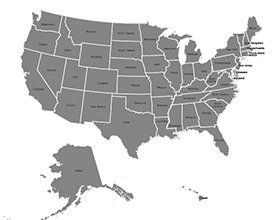Benefit Buzz - June 2024
Benefit tips brought to you by MFC Benefits, LLC

Learn more about HSA/HDHP Limit Increase and HHS Finalizes HIPAA Privacy Changes for Reproductive Health Care.
HSA/HDHP LIMITS WILL INCREAES FOR 2025
On May 9,2024, the IRS released Revenue Procedure 2024-2025 to provide the inflation-adjusted limits for health savings accounts (HSAs) and high deductible health plans (HDHPs) for 2025. The IRS is required to publish these limits by June 1 of each year. These limits include the following:
- The maximum HSA contribution limit;
- The minimum deductible amount for HDHPs; and
- The maximum out-of-pocket expense limits for HDHPs
These limits vary based on whether an individual has self-only or family coverage under an HDHP.
Eligible individuals with self-only HDHP coverage will be able to contribute $4,300 to their HSAs in 2025, up from $4,150 in 2024. Eligible individuals with family HDHP coverage will be able to contribute $8,550 to their HSAs in 2025, up from $8,300 in 2024. Individuals aged 55 or older may make an additional $1,000 "catch-up" contribution to their HSAs.
The minimum deductible amount for HDHPs increases to $1,650 for self-only coverage and $3,300 for family coverage in 2025 (up from $1,600 for self-only coverage and $3,200 for family coverage in 2024). The HDHP maximum out-of-pocket expense limit increases to $8,300 for self-only coverage and $16,600 for family coverage in 2025 (up from $8,050 for self-only coverage and $16,100 for family coverage in 2024).
HHS FINALIZES HIPAA PRIVACY CHANGES FOR REPRODUCTIVE HEALTH CARE
The U.S. Department of Health and Human Services (HHS) issued a final rule that strengthens the HIPAA Privacy Rule by prohibiting the disclosure of protected health information (PHI) related to lawful reproductive health care in certain situations. According to HHS, these new protections are necessary to protect access to and privacy of reproductive health care following the U.S. Supreme Court's decision on Dobbs v. Jackson Women's Health Organization.
The HIPAA Privacy Rule sets strict limits on the use, disclosure and protection of PHI by health care providers, health plans, health care clearinghouses and their business associates (regulated entities).
Effective Dec. 23,2024, the final rule prohibits regulated entities from using or disclosing PHI for the criminal, civil or administrative investigation of (or proceeding against) any person in connection with seeking, obtaining, providing or facilitating reproductive health care where such health care is lawful under the circumstances in which it is provided. To implement the prohibition, when a regulated entity receives a request for PHI potentially related to reproductive health care, the regulated entity generally must obtain a signed attestation that the use or disclosure is not for a prohibited purpose.
In addition, the final rule requires entities to revise their notice of privacy practices to support reproductive health care privacy by Feb. 16, 2026.
Provided to you by MFC Benefits, LLC
© 2024 Zywave, Inc. All rights reserved
Download the PDF copy here.
Link: http://chrome-extension://efaidnbmnnnibpcajpcglclefindmkaj/https://content.zywave.com/file/b6f7a224-b3a3-4409-a8f2-953f0994d66a/Benefits%20Buzz%20Newsletter%20January%202024.docx
Link: http://chrome-extension://efaidnbmnnnibpcajpcglclefindmkaj/https://content.zywave.com/file/b6f7a224-b3a3-4409-a8f2-953f0994d66a/Benefits%20Buzz%20Newsletter%20January%202024.docx










Check Out Our Video
Book an Appointment
Milford, Michigan 48381
Fax: 248-714-6091

